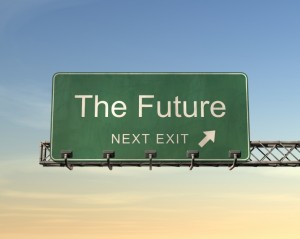Why do we fail to see the future?
Recently I came across with an op-ed article in a newspaper, where a distinguished journalist told about exercise he partook in the early years of 2000 here in Finland. SITRA, our national innovation fund, gathered some 160 experts together (I wasn’t there) to cast their ideas what will be in 2015, which is now. He revisited those assumptions and saw following:
They did understand the globalization was becoming more pervasive in general terms. They also saw the breakthrough of new information systems. They could also anticipate the demographic transition towards aging society.
However, they could not perceive how slow and stiff Finland can be in reacting those changes. They simply could not anticipate, how old institutions prevent new things from rising. Old institutions tend to hold on to power they have. In this case we may call it corporatism: they stick to their old ways even if they see the new is bound to come.
The expert group also drastically underestimate the power and the influence of EU in anything we do now in the highest political decision making level. Moreover, the dramatic influence of digitalization in terms of how “creative destruction” works its way in established businesses like paper business was ignored. Indeed, Finnish forest industry did some massive acquisition investments on paper mills in the early 2000 with the assumption that digitalization does not change market fundamentals. Well, it did.
Experts had no idea of the new cultural conflicts in terms of radical Islam will have on our lives ever since 9/11 events. Likewise, they had no perception how the financial system was about to gear towards massive problems. Also, climate change, which has become so real a part of the everyday experience of our lives, was not figuring in the discussions at all. The role of the China in the global economics, that grew massive in the first decade of the 21 century, could not be foreseen by the group. The role of social media, so powerful today, was totally disregarded at the time. As for the Russia, there prevailed a confidence that it will become a part of Western league, which for the time being seems to be a total illusion.
The above list clearly shows why predicting future is so hard:
1) you need foresee the change in dynamics. If the system does not allow that to happen, as happened with Finland in the course of the last 15 years,then you become antiquated and stagnant. Clearly the numbers today show that this is indeed the case
2) you need to count on the impact of exponential growth. The enter of China into global markets made a dramatic upward kick for market prices in almost all commodities. China was a real game-changer, yet their impact was not anticipated
3) you need to understand how new destroys the old. Not only forest industry, but also shipping, banks etc etc
4) Lifestyles changes when people adopt new technologies. Mobile technologies, social media and new digital cultures have changed our behaviors in this millennium more than we think
5) Cultural conflicts always arrive when there is systematic denial of human rights for freedom.
6) The institutional resistance to change is always hard to predict because it may hold on to power to the very last moment. The fall of the Berlin wall may serve as an example.
Yet, in spite of these difficulties, we should always try to anticipate the future. Because if we are right, even partly, that will help us enormously in our ability to make intelligent decisions.
